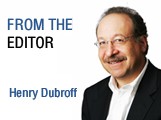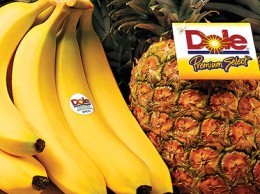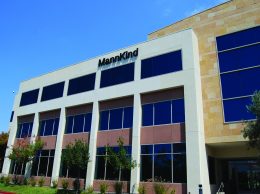With maverick Murdock at the helm, Dole is better off private

At age 90, David Murdock has been alive for most of the time that 155-year-old Dole Food Co. has been in existence.
On June 11, Murdock offered to pay $1.1 billion for the 60 percent of Dole he does not already own. That offer comes just four years after he took it public. [See article, this page].
When it comes to running his business empire, Murdock takes his cues from early 20th century Bank of England Governor Montagu Norman, whose motto was “never explain, never excuse.”
And so, the tight-lipped Murdock won’t likely ever offer any reason why he abruptly halted a $200 million stock buyback a few weeks ago and instead plowed the money into new ships.
Nor has there been any real explanation as to why the company last year sold off a third of its revenue stream to Japanese firm Itochu. Or why it has made the round trip from being private to public to private in just a few years — with no real benefit at all to shareholders other than Murdock.
Without any explanation, Dole has had a revolving door in the executive suite during Murdock’s authoritarian regime, with the most recent CEO being none other than one David Murdock. He added CEO to his chairman title when the previous CEO, David DeLorenzo, jumped ship and joined Itochu to run the package food business.
In many respects, Murdock is the last of a breed of Southern California swashbucklers. He follows in the mold of Howard Hughes, Conrad Hilton, countless studio bosses, and the recently deposed Occidental Petroleum Chief Ray Irani.
These are tough guys and no-nonsense decision makers who suffer no fools. They live life Sinatra-style. And their soundtrack is just one song — “My Way.” The downside, as any student of Peter Drucker would tell you, is that there is no permanent management, no succession planning, nothing that transforms a valuable collection of assets into a sustainable business empire.
Lately things have not gone so well for Dole and its mercurial chief. The berry businesses suffered a series of reversals and Wall Street has beaten down the stock, which has not really climbed above the $10 per share mark. The company was heavily loaded with debt when Murdock took the company public in 2009, and there are serious questions about whether shareholders have gotten — or will ever — get a fair shake.
Meanwhile, outside of Dole, Murdock raised some $500 million in cash when he sold much of the Hawaiian island of Lanai, a personal asset, to Oracle Corp. boss Larry Ellison.
Murdock has become one of the world’s leading advocates for a healthy diet loaded with fruits and veggies and once told the New York Times he plans to live to 125.
And he is pouring vast amounts of his personal fortune into building a cancer research center on the site of a closed textile mill complex in central North Carolina. His business empire includes the real estate company Castle & Cook, which presumably is its best shape in years thanks to the recovering in real estate and construction.
The benefit of the CEO-as-swashbuckler model is that these sorts of leaders tend to think big and can execute those grand ideas on a whim.
The downside is that in an era of shareholder activism and great skepticism about self-dealing, the swashbucklers are not likely to curry favor with shareholders unless they deliver consistent value.
The 21st century version of Montagu Norman is Federal Reserve Chairman Ben Bernanke, who has replaced the pithy “never explain, never excuse” with transparency and a professorial approach to monetary policy.
Murdock is a living anachronism. It is almost certainly for the better for Dole Food Co. to go forward as a private company, where the Montagu Norman rule can live on — and where Murdock can have it “his way” to age 100 and perhaps beyond.
A skeptical Wall Street has sent the stock trading above Murdock’s offering price, meaning that it suspects a low-ball offer that will have to be raised to meet a minimum threshold of Dole’s fair value.
So it is possible that the last chapter in Dole’s revolving door of public versus private ownership will not end anytime soon.
• Contact Editor Henry Dubroff at [email protected].












